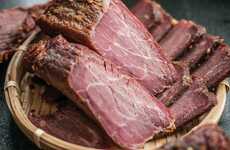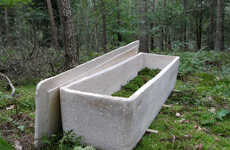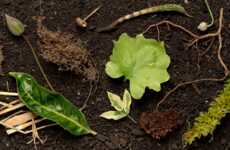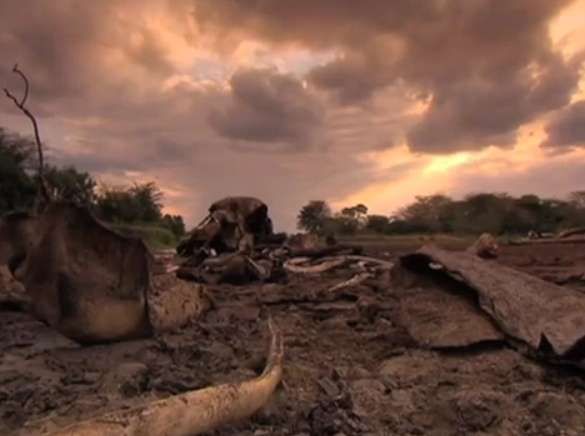
'The Elephant: Life After Death' Studies the Decay of an African Giant
References: channel4 & newscientist
According to this incredible new documentary called 'The Elephant: Life After Death', a dead adult elephant contains enough calories to feed a grown human for over eight years.
Despite the staggering amount of eating one human would have to do to finish off an elephant corpse, however, the incredible footage featured in this clip shows wild animals in Tsavo West National Park in Kenya finishing the task in just seven days. In a remarkable and completely unique experiment, 'The Elephant: Life After Death' shows vultures, hyenas, leopards and insects reducing the young adult elephant to a mere skeleton in just under a week -- no mean feat for a six million calorie meal.
Despite the staggering amount of eating one human would have to do to finish off an elephant corpse, however, the incredible footage featured in this clip shows wild animals in Tsavo West National Park in Kenya finishing the task in just seven days. In a remarkable and completely unique experiment, 'The Elephant: Life After Death' shows vultures, hyenas, leopards and insects reducing the young adult elephant to a mere skeleton in just under a week -- no mean feat for a six million calorie meal.
Trend Themes
1. Decomposition Time Lapses - Opportunity for innovative time-lapse photography techniques to showcase and study the process of decomposition.
2. 'the Elephant: Life After Death' - Opportunity to explore the field of animal behavior and ecological dynamics through studying the decay of large animal carcasses.
3. Caloric Value of Elephant Corpse - Opportunity for research and development of sustainable solutions utilizing the high caloric value of deceased large animals.
Industry Implications
1. Documentary Filmmaking - Disruptive innovation opportunity in using time-lapse techniques to capture and analyze the decomposition process in wildlife documentaries.
2. Ecology and Wildlife Research - Disruptive innovation opportunity in using large animal carcasses to study animal behavior, ecological dynamics, and the role of scavengers in ecosystems.
3. Sustainable Food Production - Disruptive innovation opportunity in exploring the utilization of deceased large animals to provide sustainable sources of food for human consumption.
4.1
Score
Popularity
Activity
Freshness























